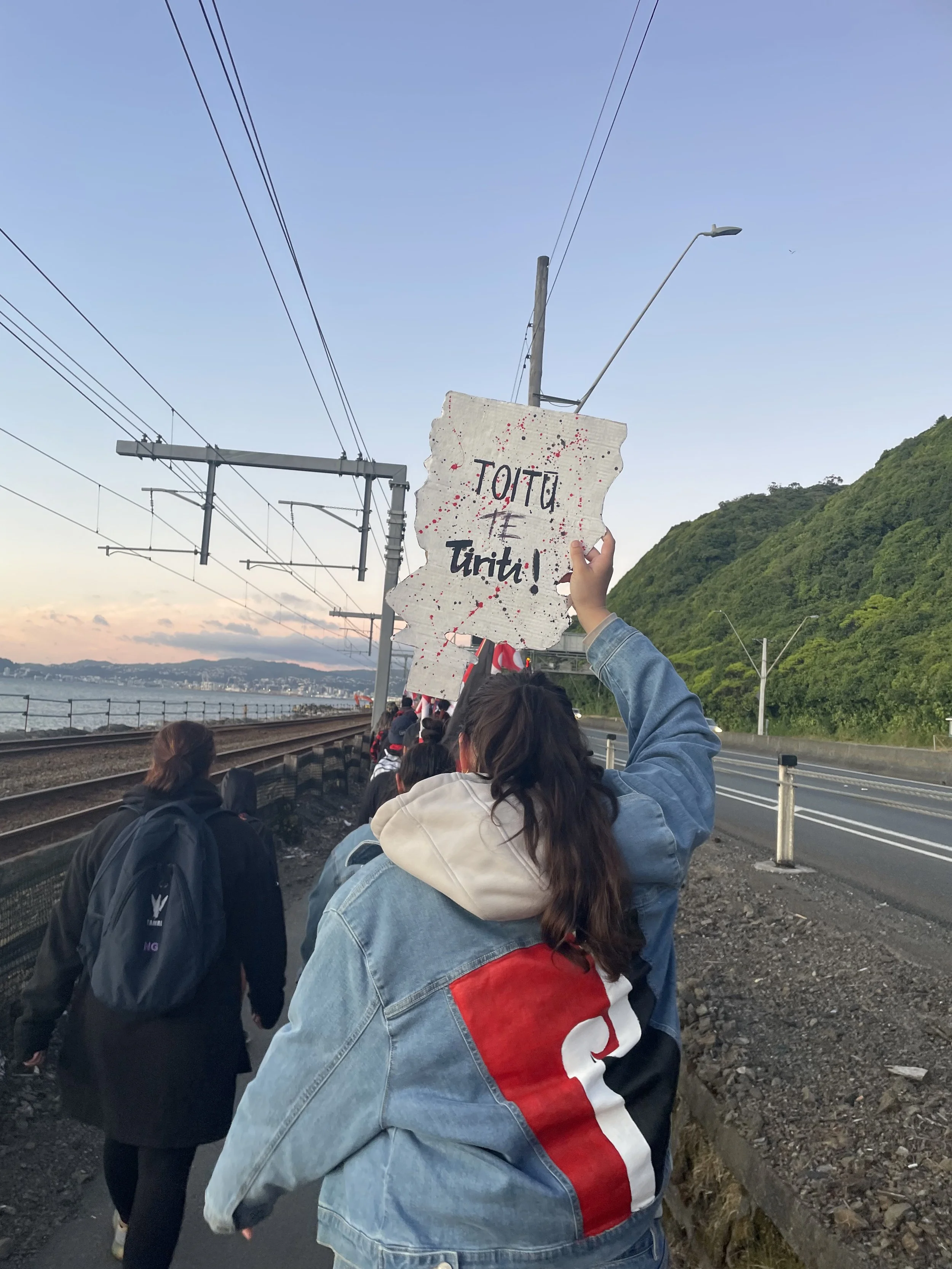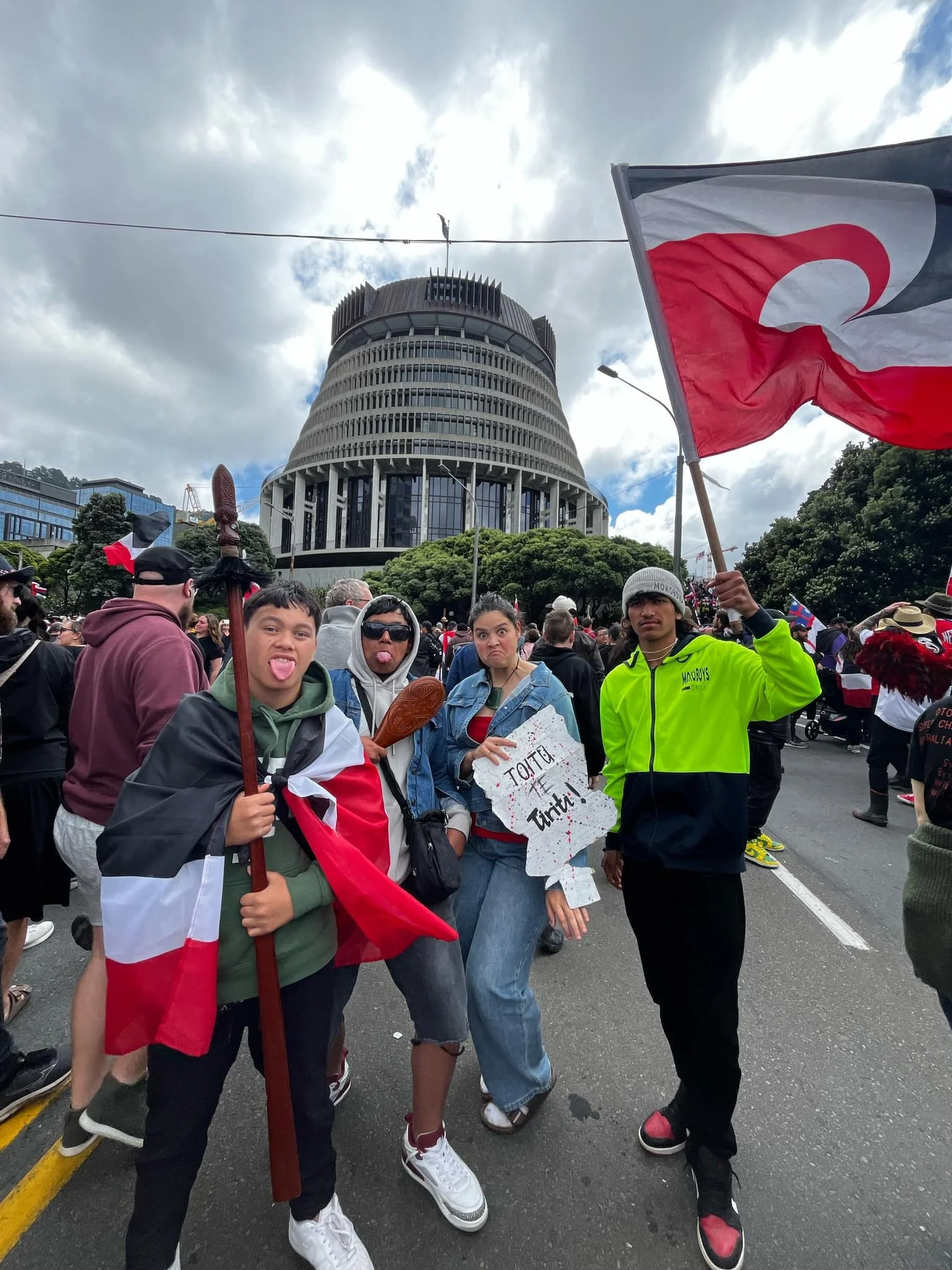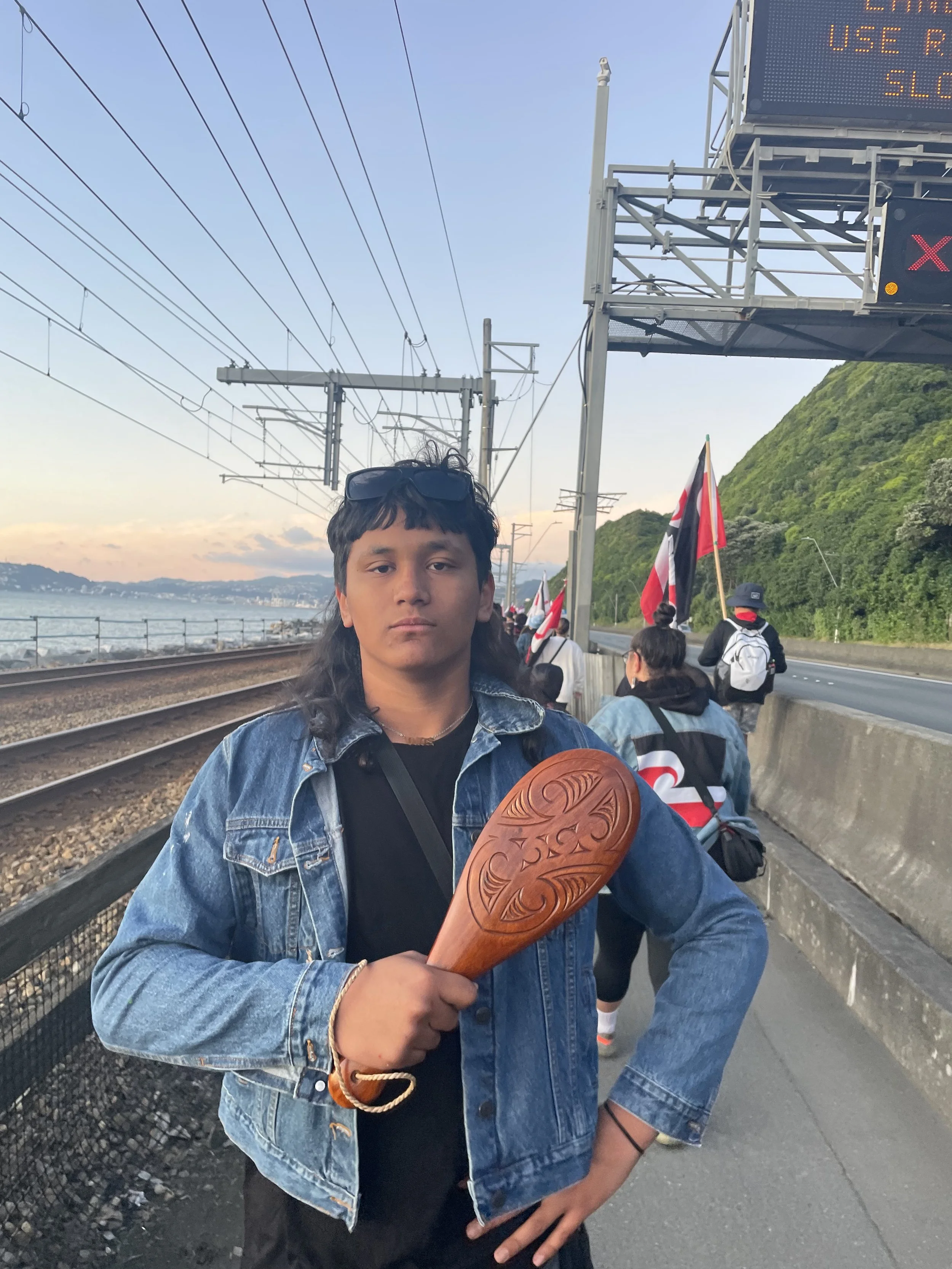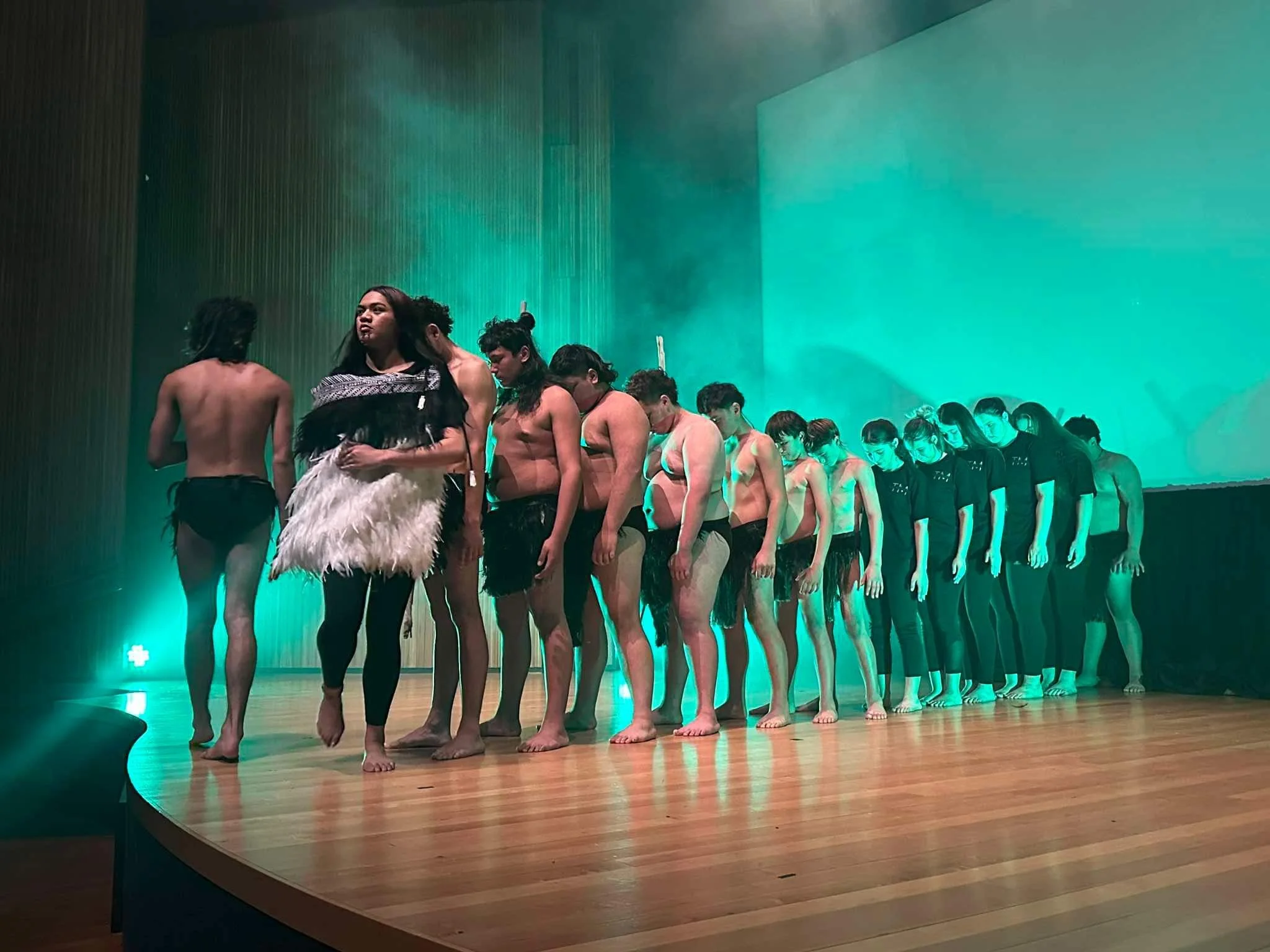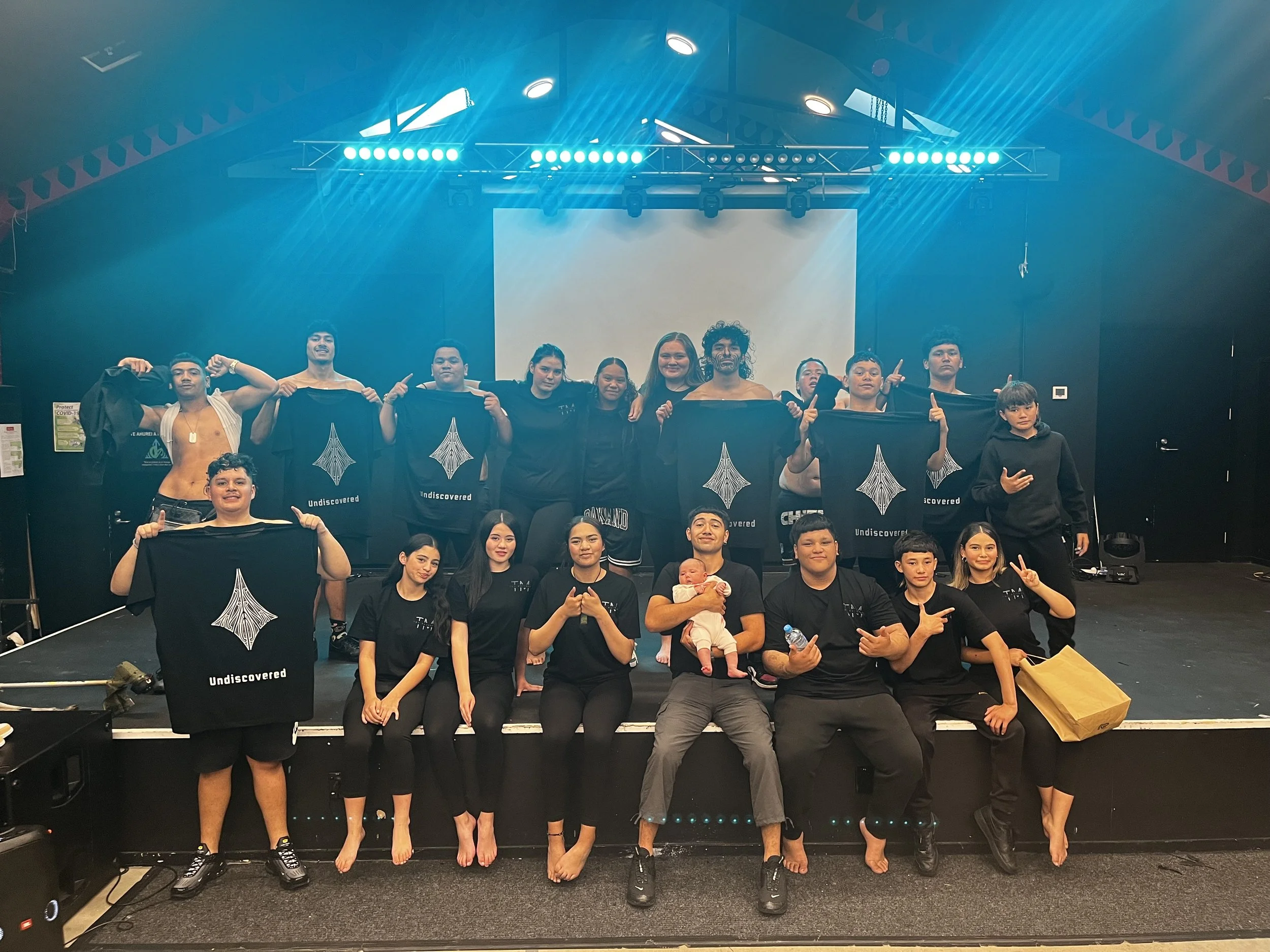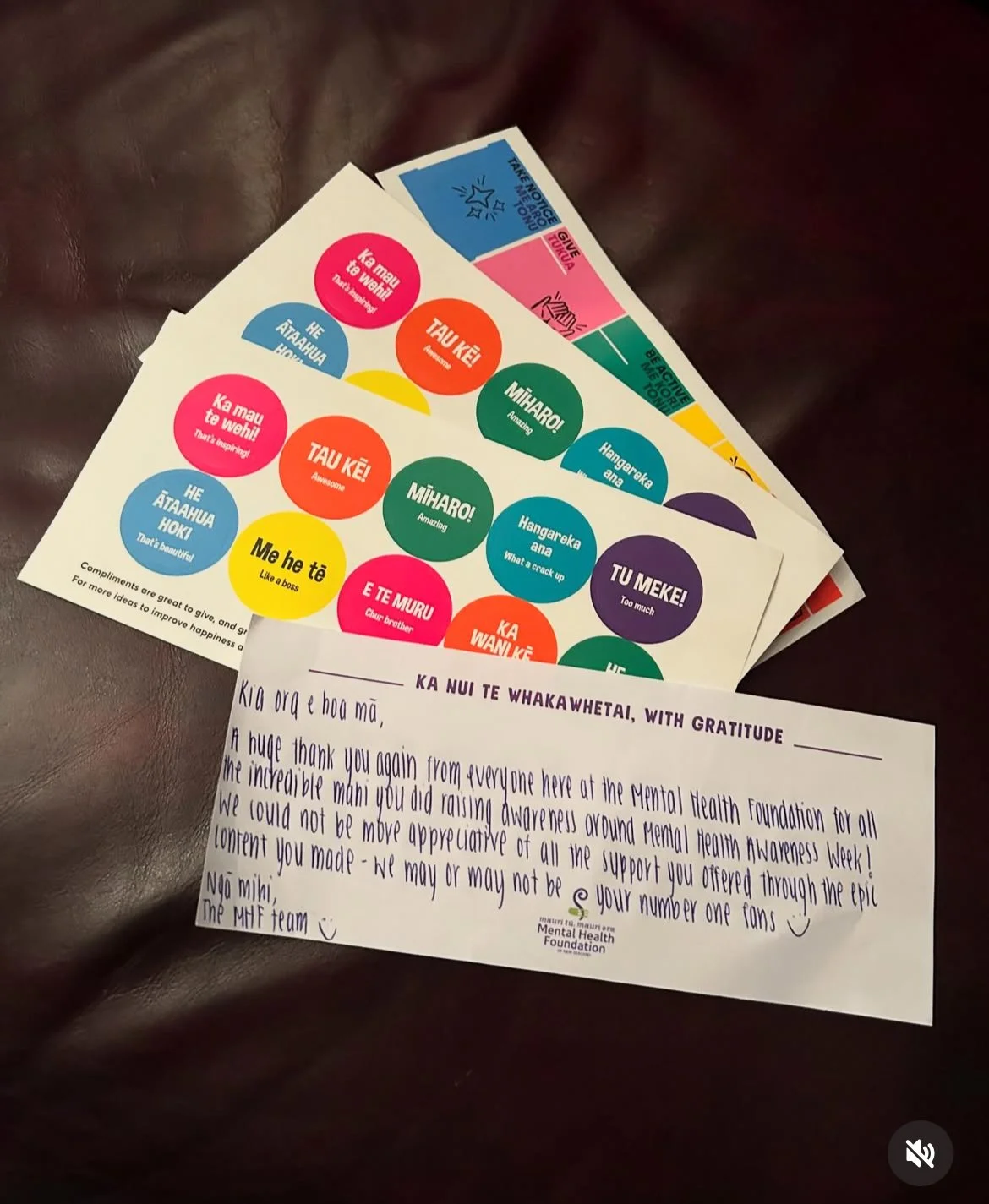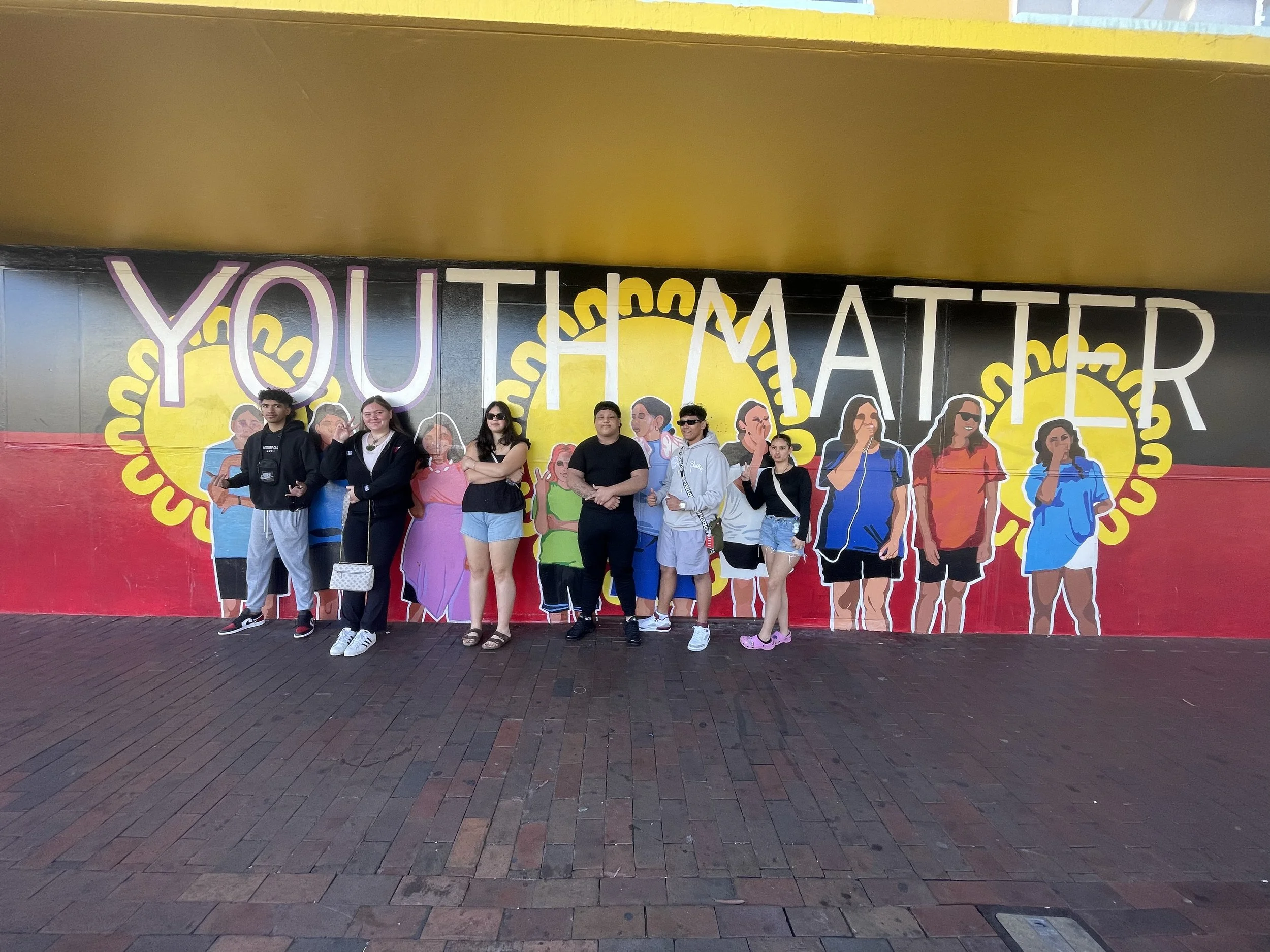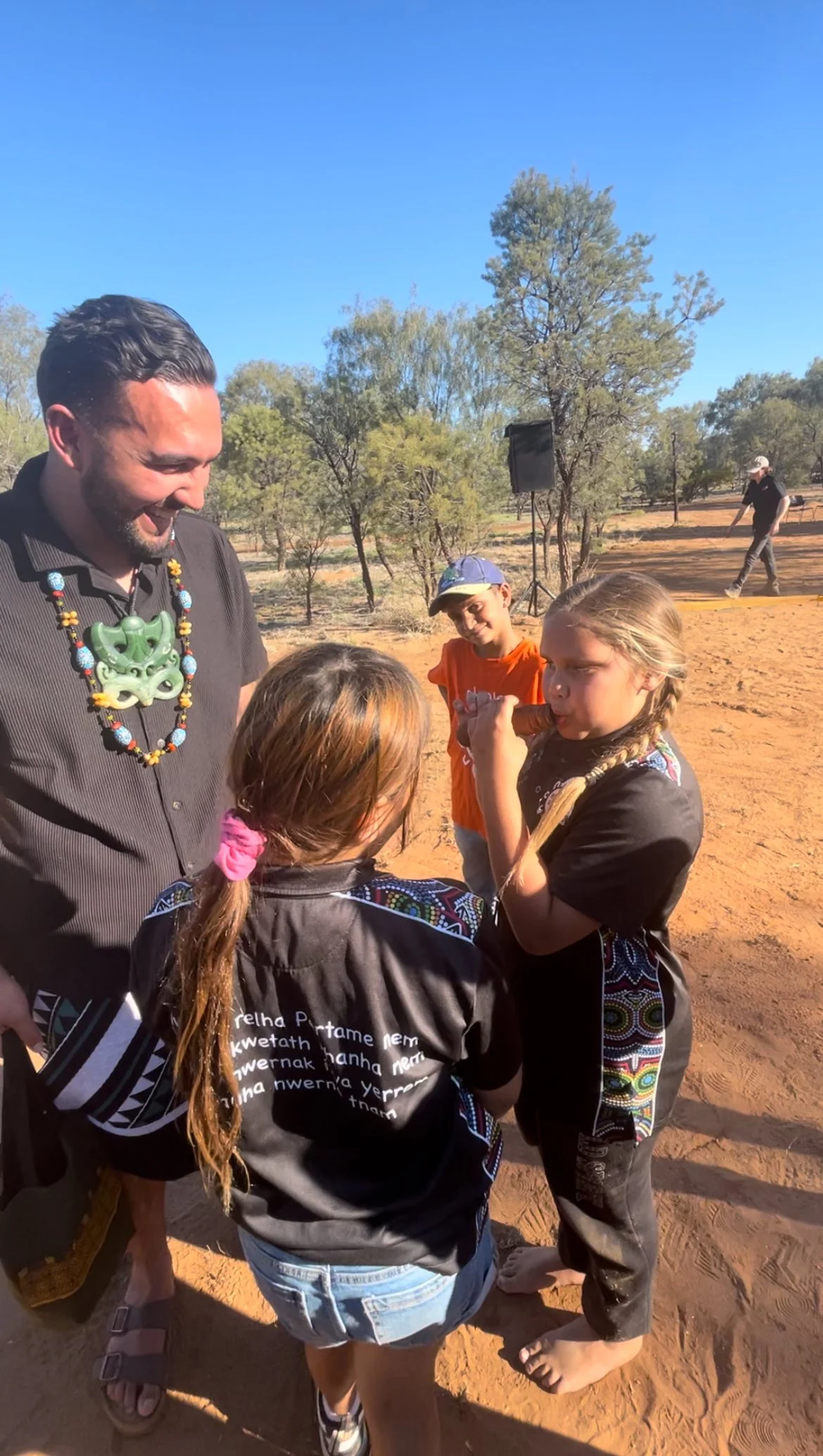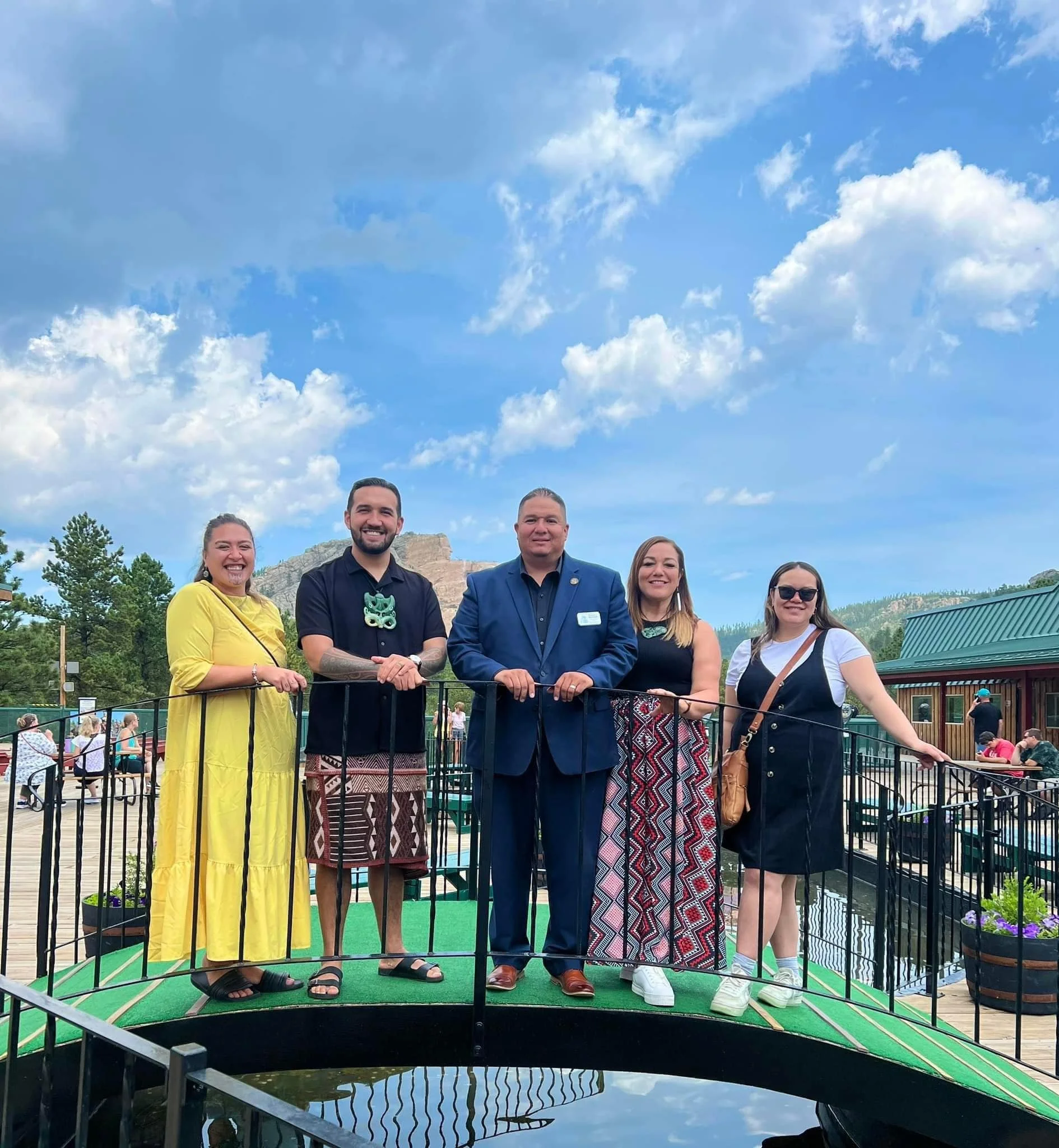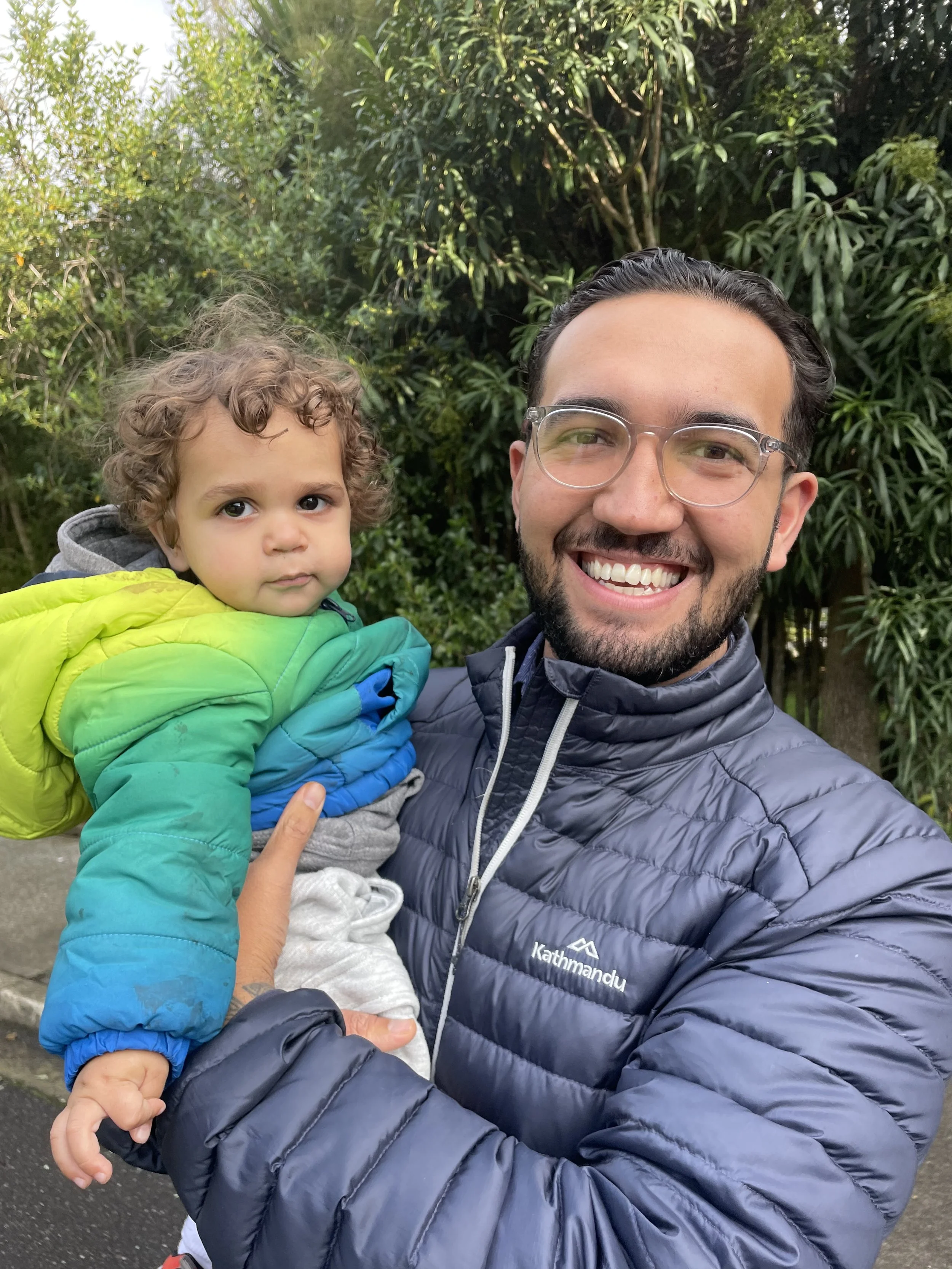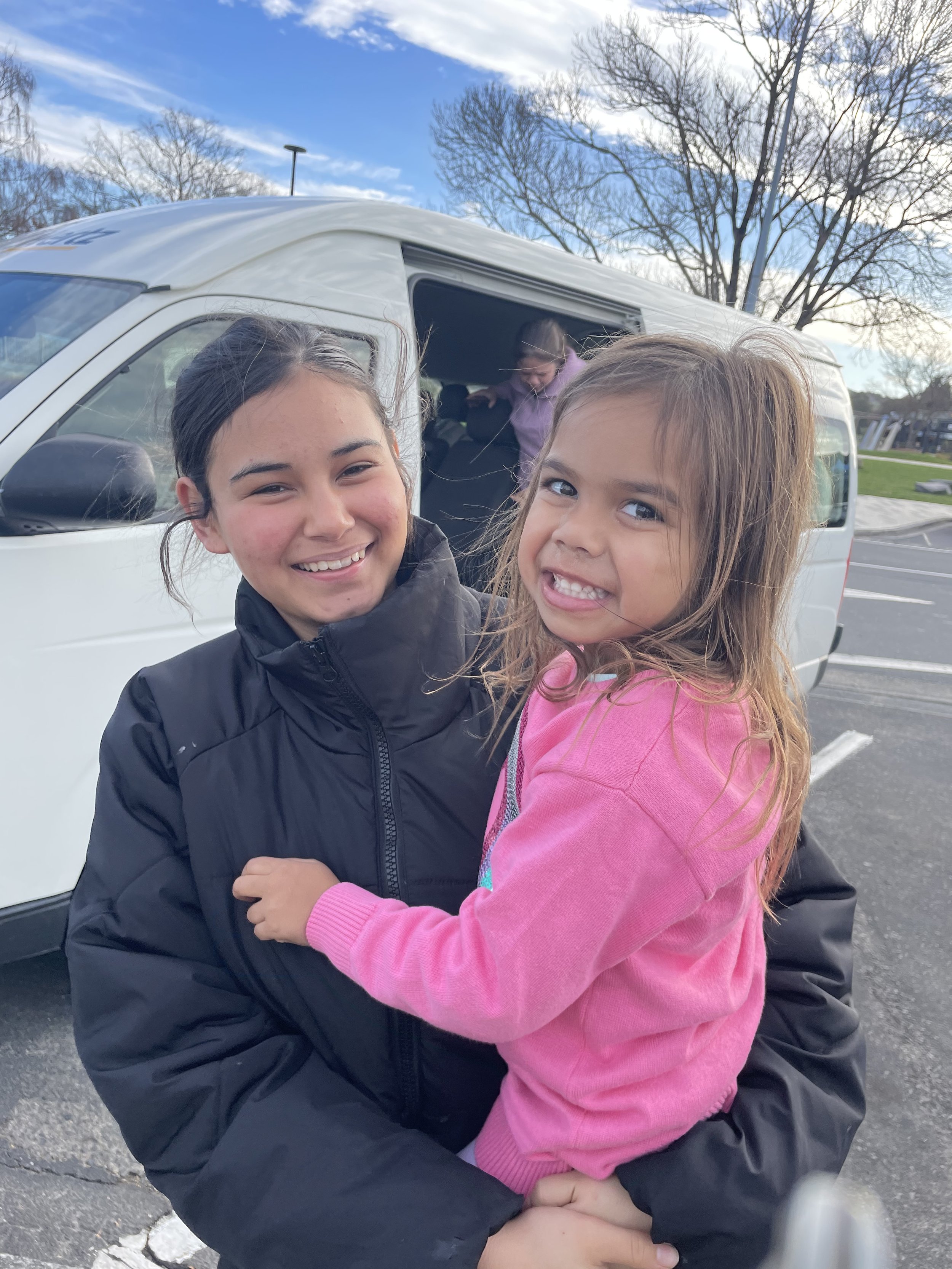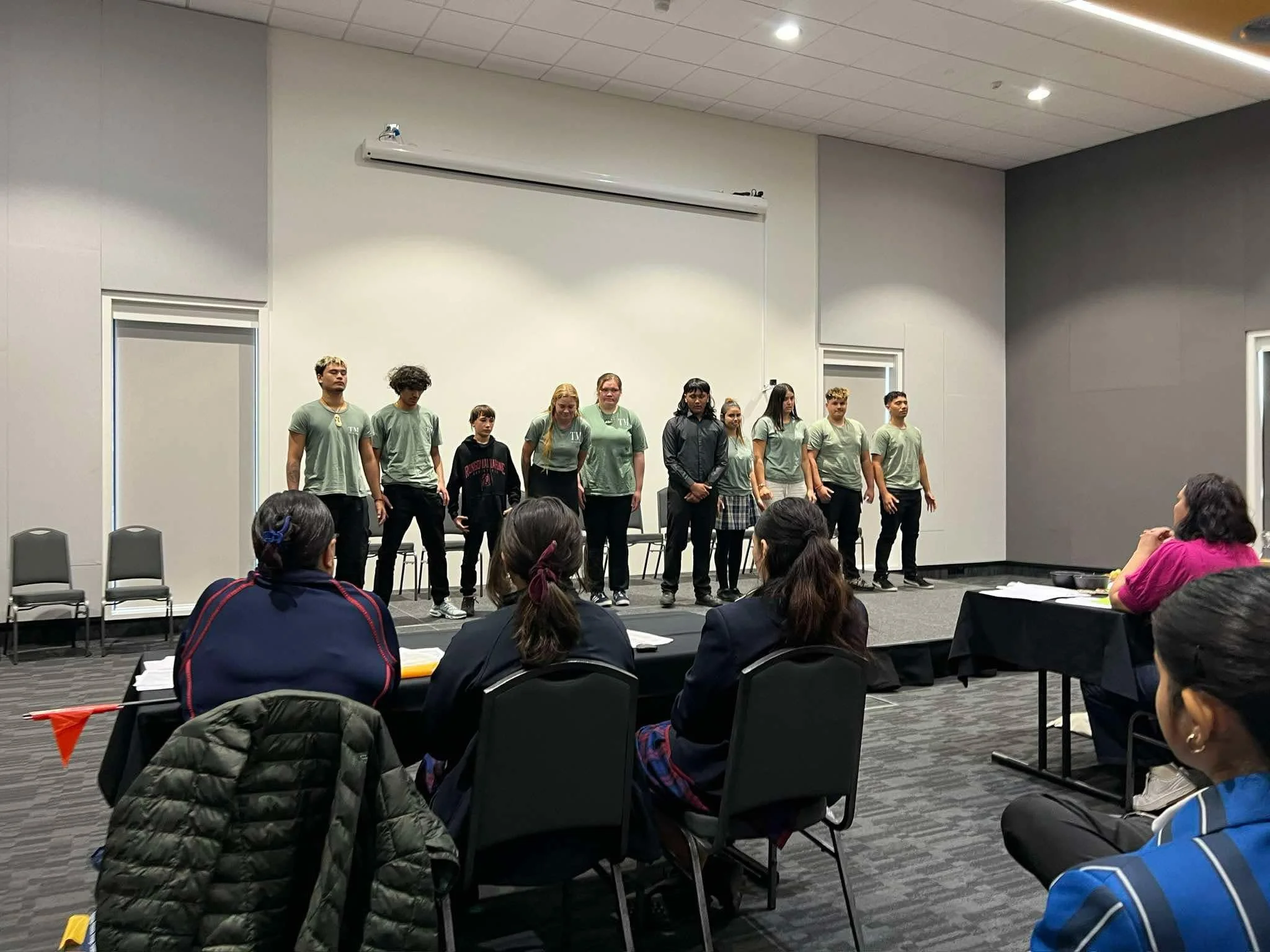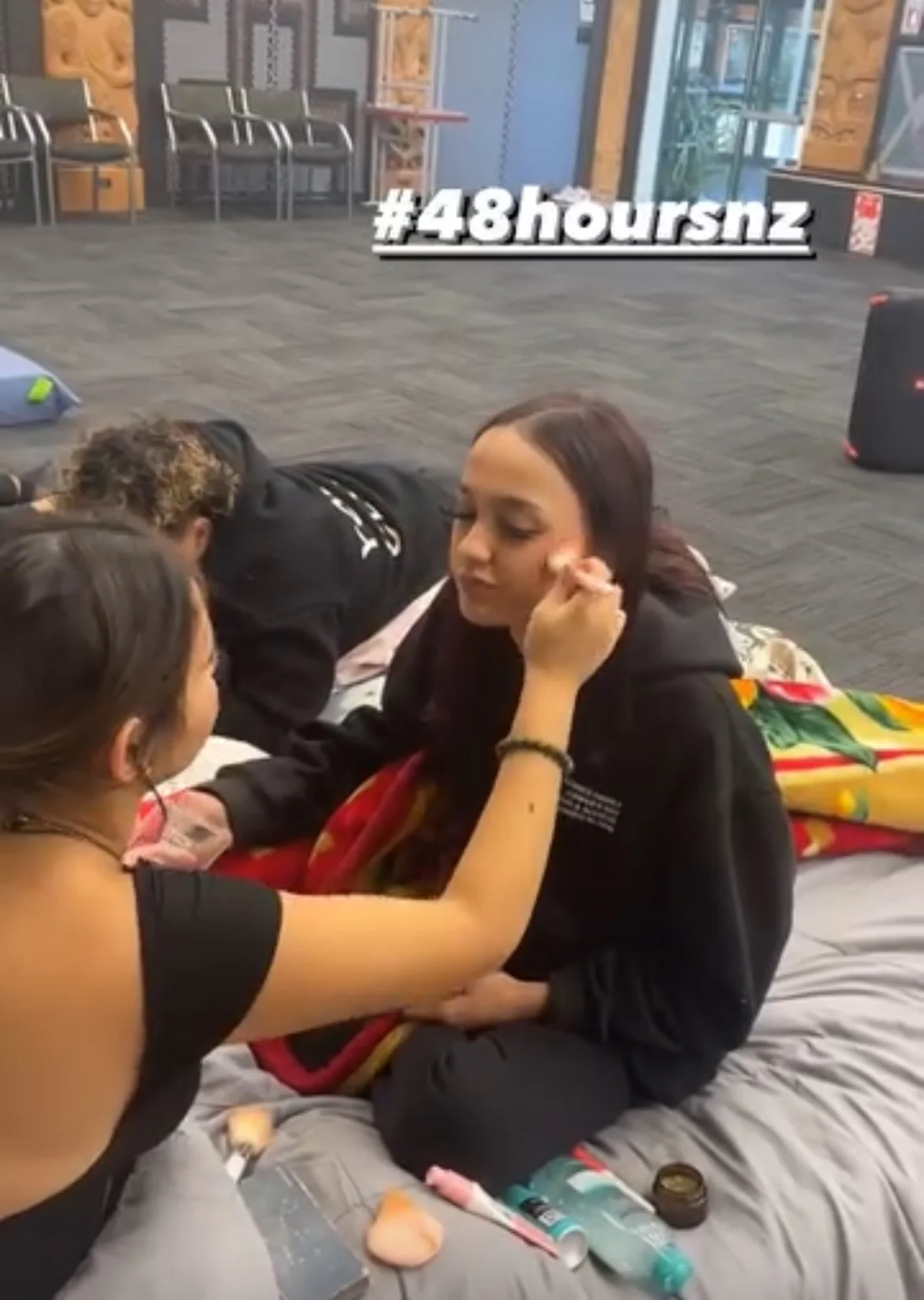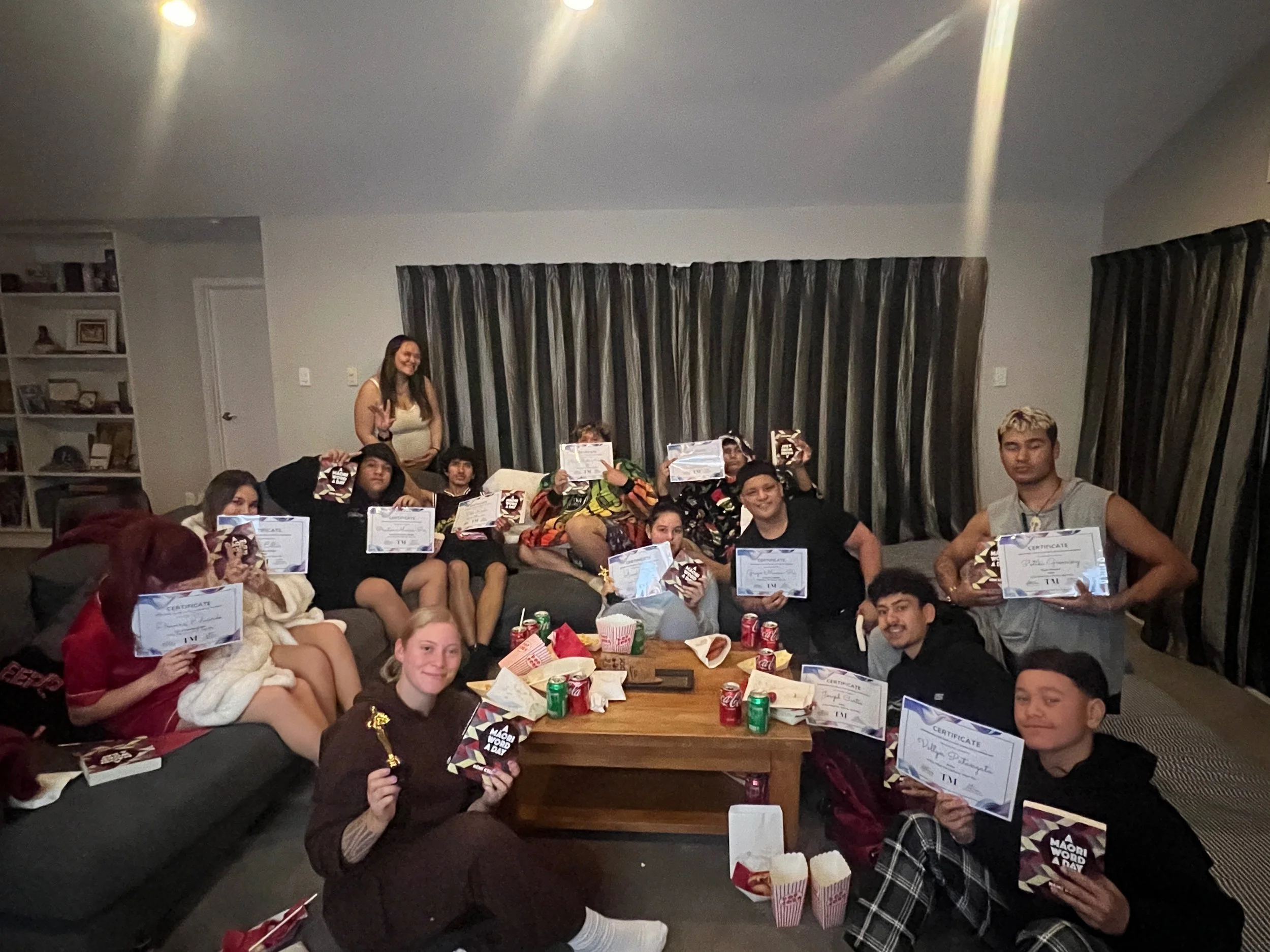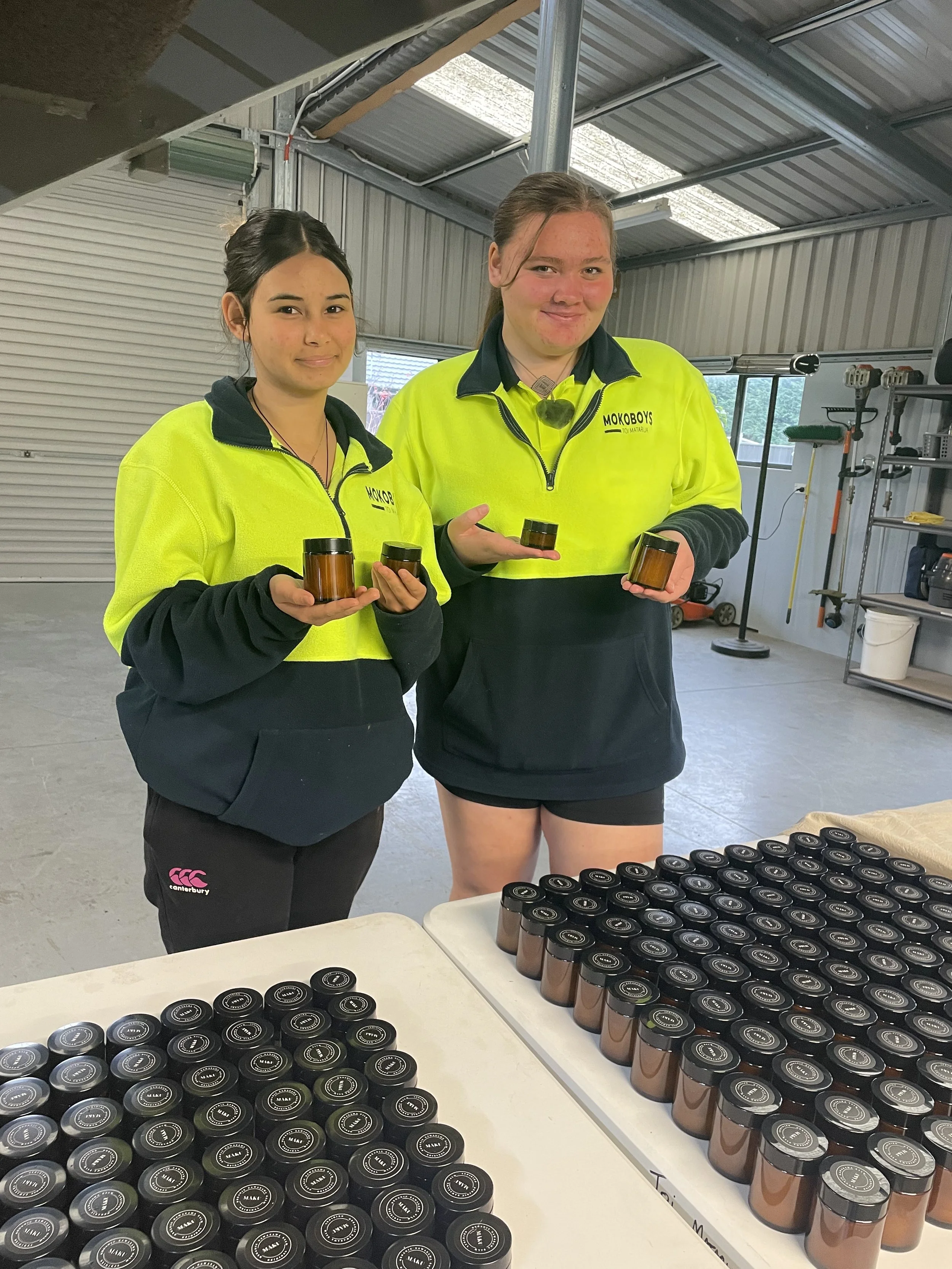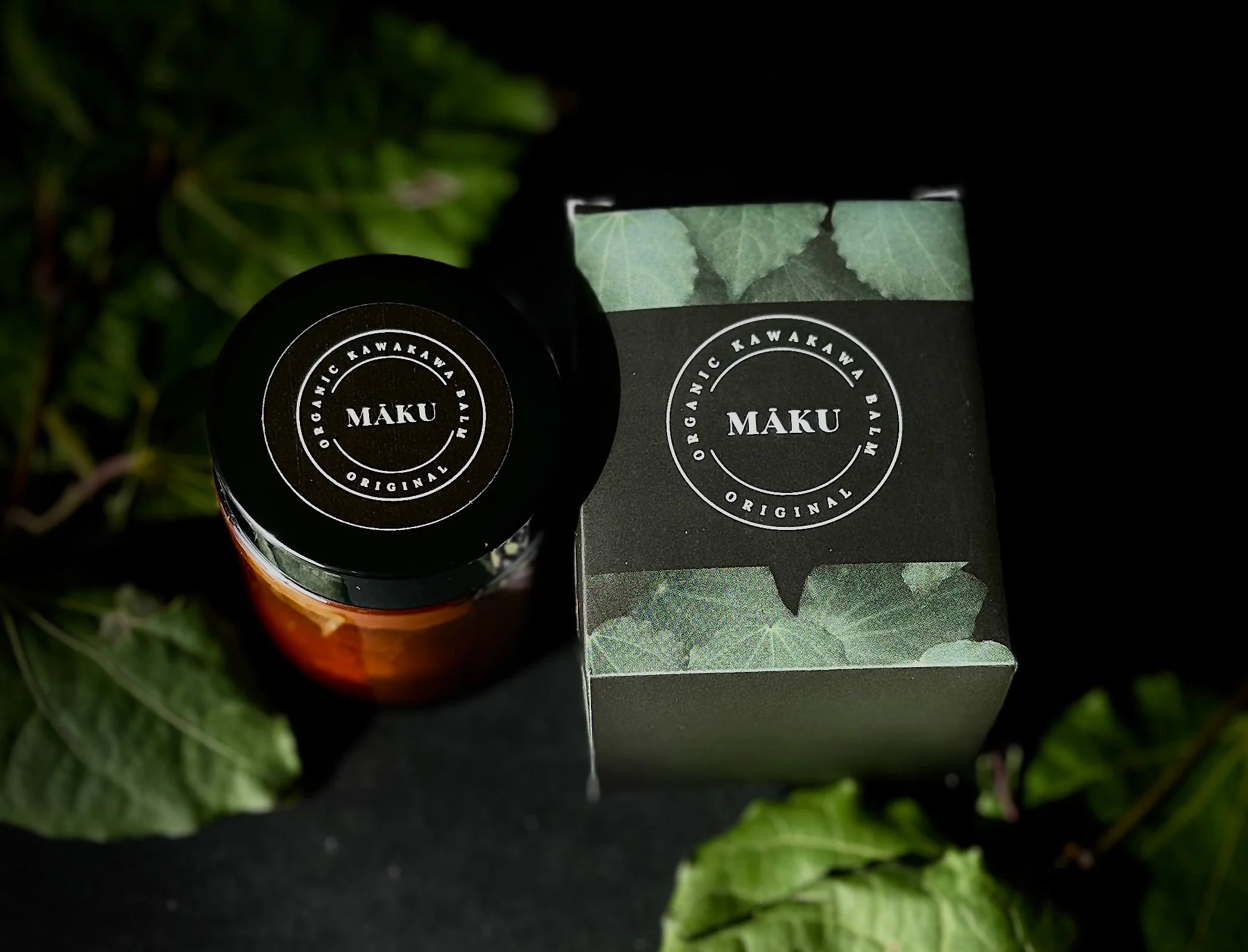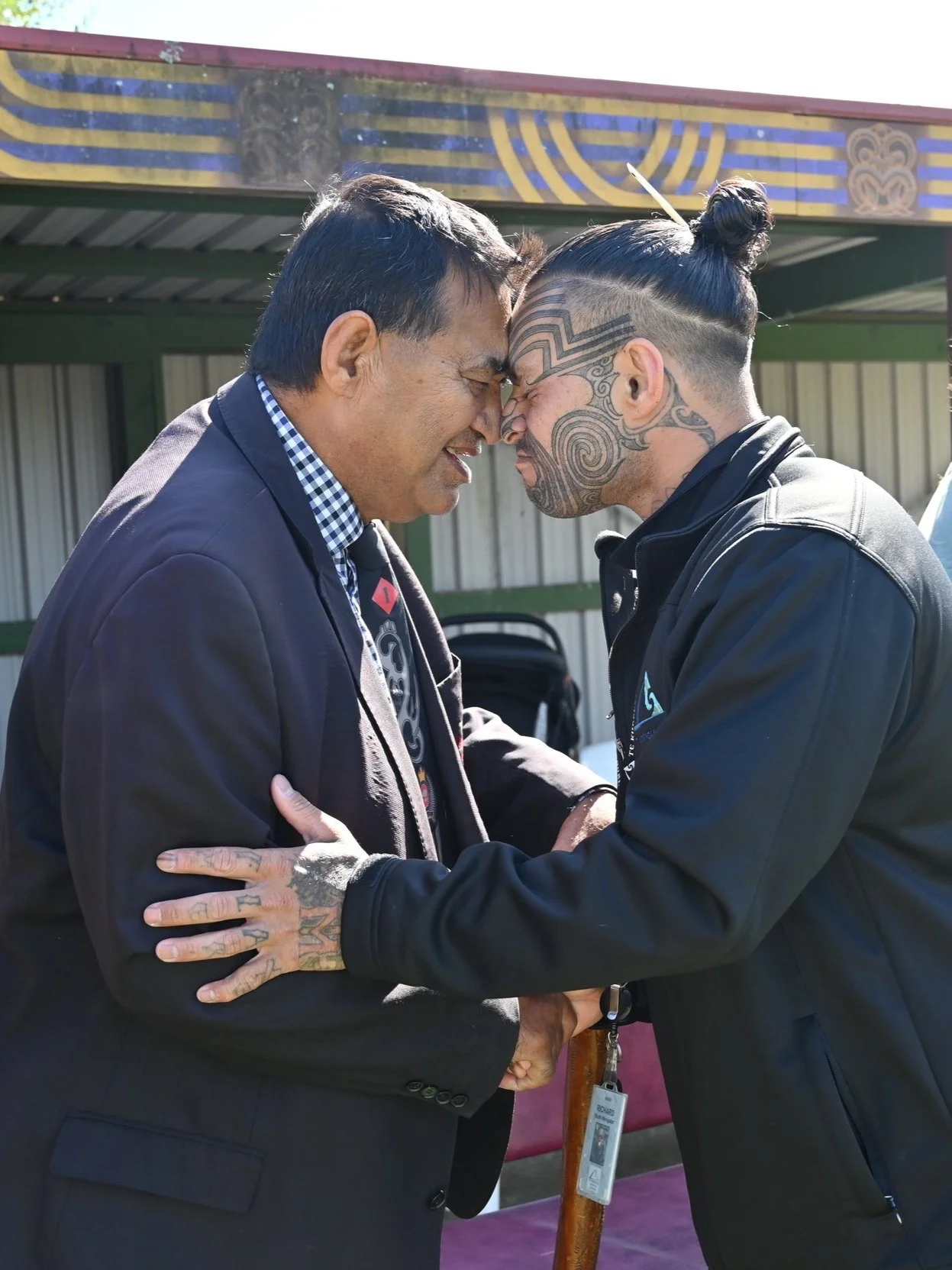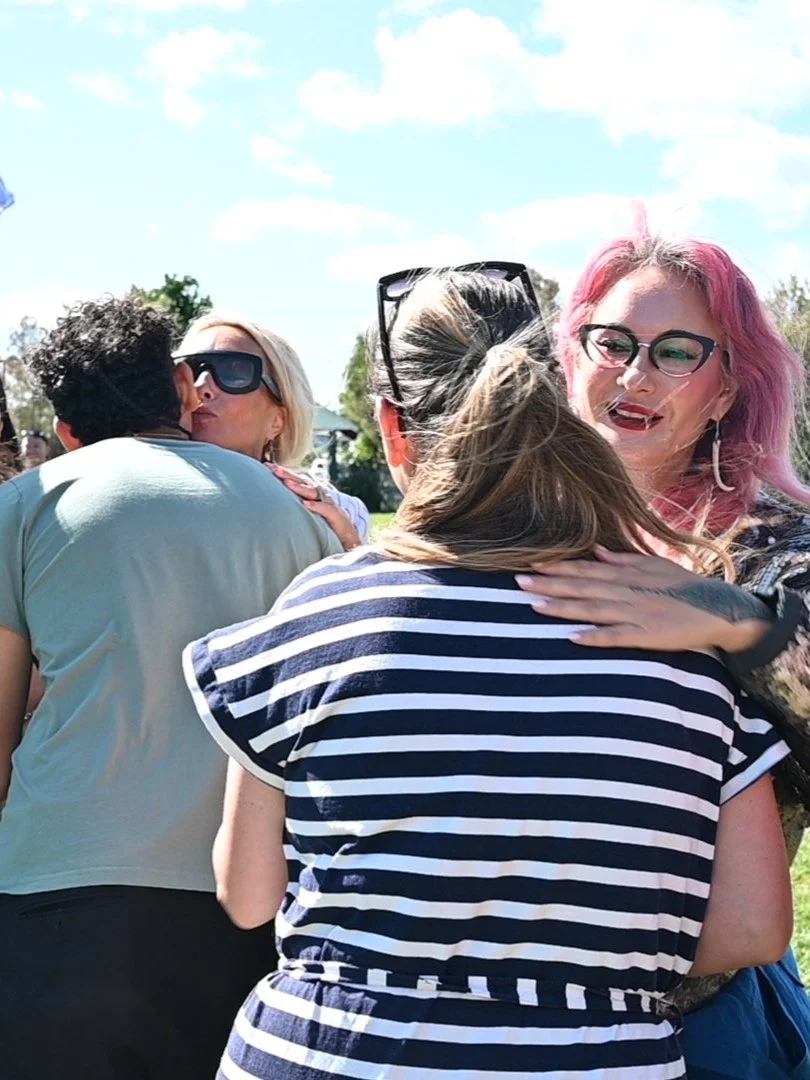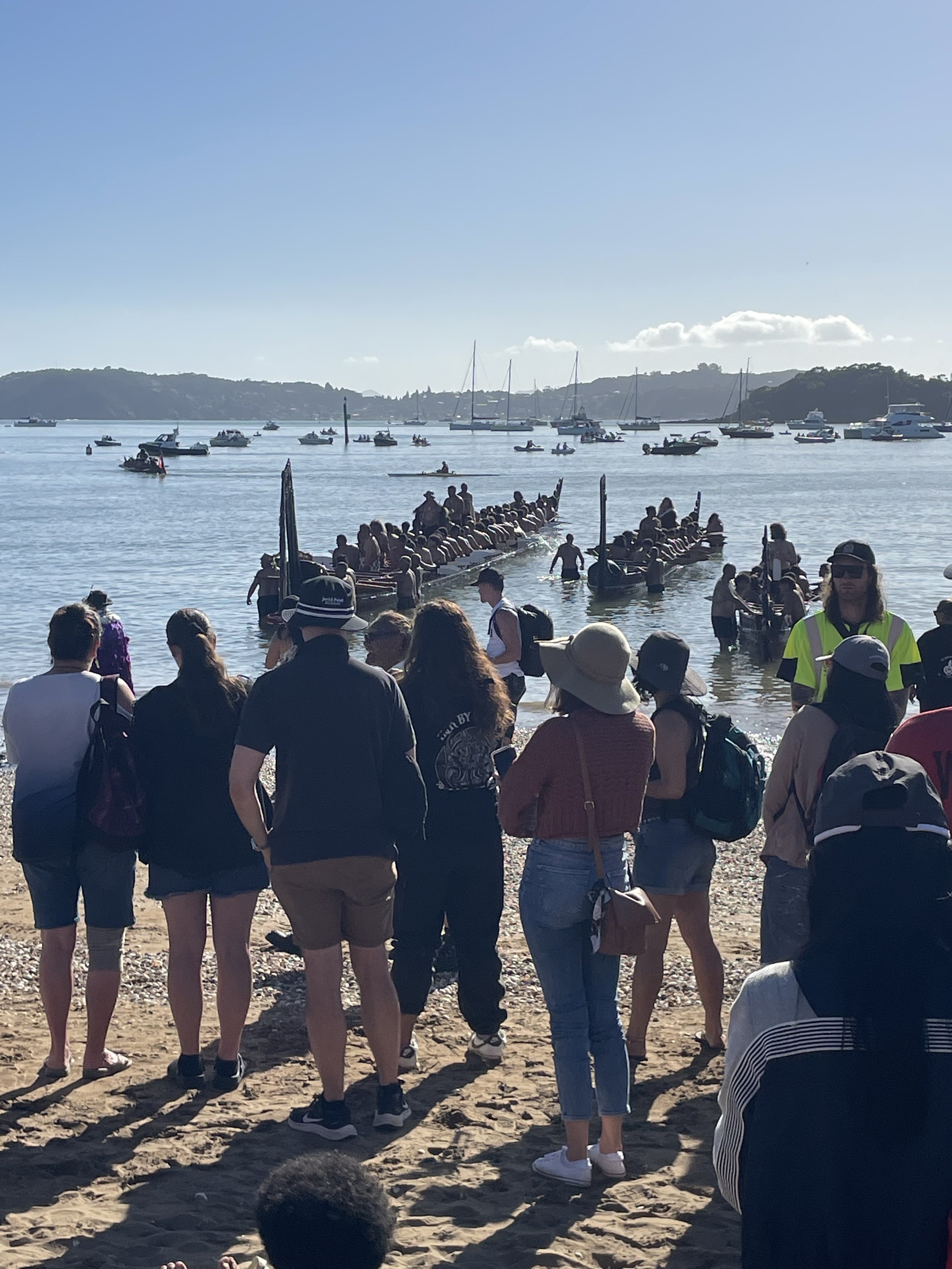Highlights of 2024
We had the opportunity to take a small group of our rangatahi to Pōneke for the final leg of the Toitū te Tiriti hīkoi. The journey began at 3am walking from Pito-One to Wellington City. We walked around Waitangi Park and made our way up to Parliament, where we listened to influential figures such as Eru-Kapa Kingi, Hana-Rāwhiti and members of Te Pāti Māori. It was an empowering moment for our rangatahi, who stood tall with pride in their Māori identity and reflected on the legacy of our tipuna who fought so fiercely for us to get this far. Over the course of the day, we walked over 32,000 steps — not one complaint was heard, only a collective sense of commitment and sacrifice for a kaupapa that is far bigger than any individual.
We took our 2024 Youth Production, ‘Undiscovered’, from rehearsal to the stage, sharing the production with communities in Hamilton and Napier. The journey began with a performance in Hamilton, followed by two sold-out shows at the Century Theatre in Napier. The dedication and creativity of our rangatahi brought the show to life in a way that left a lasting impact on all who attended—from council members and social service providers to kura, rangatahi, friends, and whānau.
For Mental Health Awareness Week 2024, our Pakaru Pānui team completed the MHAWNZ daily challenges for each of the themes. They were recognised as one of the best contributors to the social media challenge and won a prize for their mahi!
In August, we attended the LEGO Family Spirit Conference '24 in Mparntwe (Alice Springs, Australia). We spent a week learning from and sharing each other’s cultures, with a primary focus on exchanging Indigenous knowledge about creating spaces for tamariki to engage in play. We showcased our approach to fostering intergenerational cultural competency and confidence. During the trip, our rangatahi had the once-in-a-lifetime opportunity to go onto Arrernte country. The Arrernte people led smoking ceremonies, clapstick making around the fires, foraging for bush foods, and creating bush medicine. We visited the Pertame Ngetya Untya, their version of a language nest. Our rangatahi spent an entire day with them as they conducted their lessons entirely in Pertame, singing, dancing, exploring, painting, playing, and even catching an Ankerta (Bearded Dragon). We were also fortunate to meet and bond with teenagers from Alice Springs. We connected instantly with Indigenous rangatahi and tamariki from other nations, teaching them our games, learning each other’s languages, and spending time with the Pertame people out bush. It was a life-changing trip for our youth.
Toi Matarua launched our very own audiobook of pūrākau and oriori shared by our rangatahi titled ‘Kia Au, Ko Au’.This audiobook is available to the public via a variety of platforms including Spotify, YouTube and our Toi Matarua website for whānau to utilise as a tool for healing, combatting anxiety and overstimulation as well as easing into a good sleep.
From Thursday 1st till Sunday 4th August our rangatahi leaders facilitated a national rangatahi conference, the ‘Kia Au, Ko au’ Rangatahi Winter Camp. The camp drew on ancient knowledge and practices of Oriori, Pūrākau and Maramataka to educate rangatahi on indigenous ways of calming the mind, settling the spirit and relaxing into a deep sleep, combating anxiety and overstimulation while developing tools to be shared with their whānau, hapū, and iwi. With over 60 rangatahi in attendance, the leaders facilitated workshops on maramataka, digital storytelling, social enterprise, meditation and Dr Sally Rye’s Rongo ā Puku movements. The conference concluded with presentations of each groups short films, music videos, social enterprise business plans and contemporary haka.
Char, Sally, Te Rika, and Soraya had the privilege of being invited over to the United States to share and present some of our kaupapa at the Oyate Health Center in Rapid City. During their time there, they forged meaningful connections at Crazy Horse, engaging in kōrero with Indigenous academics and communities. They were warmly welcomed by Sitting Bull College and Immersion School and had the opportunity to visit sites of great significance to our Indigenous whanaunga. These connections have paved the way for future opportunities to take our rōpū overseas over the next two years.
We had the privilege of hosting our Pertame whānau from Alice Springs, who are on a profound journey of language reclamation with only a small number of native speakers remaining among their kaumātua. During their time in Aotearoa, we guided them on visits to kōhanga reo, kura kaupapa, and wānanga, hosted them at our local marae, and took them to sites of cultural significance. Our rangatahi stepped up as their entourage, providing support throughout pōwhiri processes, engaging with their tamariki through play, and ensuring they felt warmly welcomed at every stage. The week concluded with a strategy hui.
A group of rangatahi prepared to compete in this year’s Ngā Manu Kōrero regional competition. We held afterschool study hui where they explored the competition process, selected topics, and worked on writing and rehearsing their speeches. While only one rangatahi made it to the stage this year, their journey was transformative. They overcame a fear of public speaking, inspiring others in the group who had been hesitant to step forward. Seeing their friend succeed has made the prospect of competing next year feel much more achievable for the rest of the team, sparking newfound confidence and determination.
We participated in the 48-Hour Film Festival. As the name suggests, this intense competition challenges teams to create a short film—writing, directing, filming, and editing—all within just 48 hours. Each team is assigned a genre along with specific elements that must be included, making it a dynamic and exciting experience. Our rangatahi fully embraced the challenge, showcasing their creativity and teamwork throughout the weekend. Their hard work and talent were recognised, earning them the title of 2nd Audience Favourite in their heat—a fantastic achievement for their first time competing.
Toi Matarua established our very own social enterprise, ‘Māku’. After Cyclone Gabrielle, we saw the need for our MokoBoys initiative in our community. The MokoBoys make and sell their own line of organic products including kawakawa balms to sustain their employment and keep the service free for kaumātua in need. Rather than waiting for funding or government assistance we showed up for our community and that is how we got the name ‘Māku’ (I will). To find out more about Māku or support our social enterprise please follow this link: https://www.maku-organics.com
On Tuesday 5th March, Toi Matarua hosted an open day at Pukemokimoki marae. The rangatahi welcomed on Native American manuhiri and local organisations, kaiako and whānau wanting to know more about what we do. There were workshops on different kaupapa TM run and support such as Tū Tārake, MokoBoys and the local Shamrock Boxing. Then we finished up with a big hākari (of course!).
It was awesome seeing our rangatahi take charge within their workshops, during the powhiri and throughout the whole day. We also give big thanks to our Board for holding it down in the kitchen.
We took a small cohort of rangatahi to the Treaty Grounds to participate in the Waitangi Day events. We had the chance to watch the waka parade, listen to kōrero by prominent Māori leaders, including Hana-Rāwhiti, participate in workshops and walk the grounds of our ancestors. It was a great day of proudly celebrating our Māoritanga. We had the privilege of interviewing the Chief Children’s Commissioner and speaking with many of the rangatahi who were in attendance. For our rangatahi, this was a chance to stand with our people at a time when the future seemed uncertain with the new government having just announced the policies they would be focusing on during their time in parliament. This started kōrero around how politics affects our everyday lives and helped our rangatahi to begin engaging in the area by creating their own evidence-based opinions

